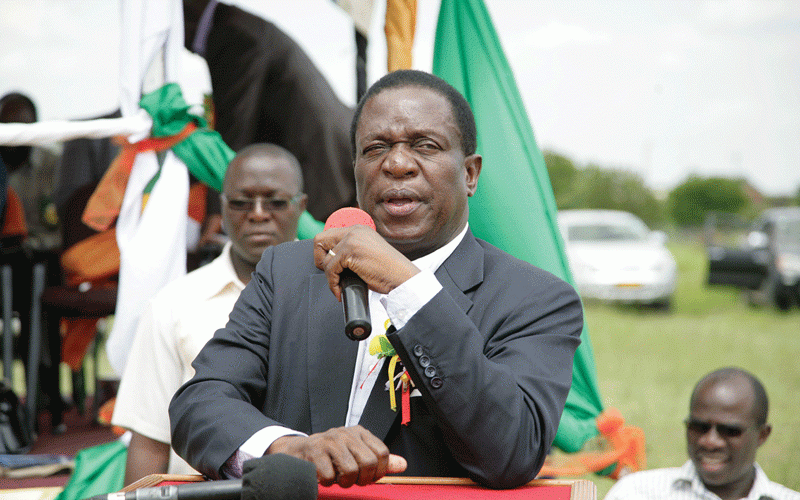
PRESIDENT Emmerson Mnangagwa has called on climate change actors to invest in research to develop climate-sensitive technologies to reduce the country’s greenhouse gas (GHG) emissions.
Speaking at the 3rd edition of the Zimbabwe Economic Development Conference, being held under the theme, Building Resilience and Driving Economic Transformation Under Climate Change, Mnangagwa said there was a need to come up with home-grown solutions for further modernisation and industrialisation.
He said there was need to scale-up research and development, which is essential in developing efficient and climate-sensitive technologies and processes.
“Moreso that our country is under illegal sanctions, hence the need for thorough research to come up with home-grown solutions to leapfrog the modernisation and industrialisation of our beloved motherland, Zimbabwe,” Mnangagwa said.
He said Zimbabwe was committed to reducing GHG emissions by 40% per capita by 2030, as this would have a genuine impact on the fight against climate change by achieving Nationally Determined Contributions, much quicker.
“This will be accomplished, in part, through renewable energy development, afforestation and sustainable forestry management.
“Additionally, the transition requires significant investments in renewable energy infrastructure and green technologies which stimulate energy efficiency and low-carbon transportation,” he said.
Mnangagwa said it was discouraging that the impacts of climate change were more pronounced in low-carbon emitting countries such as Zimbabwe, with the vulnerable struggling to deal with the impacts of a climate crisis they never created.
- Mr President, you missed the opportunity to be the veritable voice of conscience
- ED to commission new-look border post
- Zanu PF ready for congress
- EU slams Zim over delayed reforms
Keep Reading
“The frequency and severity of these events pose a significant threat to our economic growth, agricultural productivity and overall well-being.
“This underlines the urgent need to find sustainable solutions to address these challenges and build resilience in our communities.”
He encouraged local industries to leverage on the existing clean energy and natural resources to invest in infrastructural development in the country.
Mnangagwa also urged tertiary institutions to take advantage of innovative young minds to fully utilise available resources to address challenges posed by climate change.
“Given the current climate crisis, I challenge the young, vibrant minds in our tertiary institutions to fully utilise the resources and opportunities availed at the innovation hubs and industrial parks,” he said.
“Creativity and innovativeness should result in the development of more home-grown solutions that effectively address the challenges posed by climate change.
“This is the emphatic call for the youth to step up and take ownership of our collective future by offering their unique insights and innovations to promote resilience in our communities.”
The President said government was prepared to advocate the reform of the international financial architecture and come up with clear action on debt to secure funding for climate change initiatives in the country.










